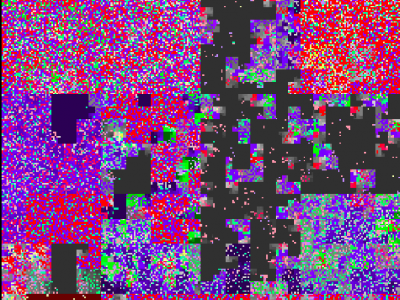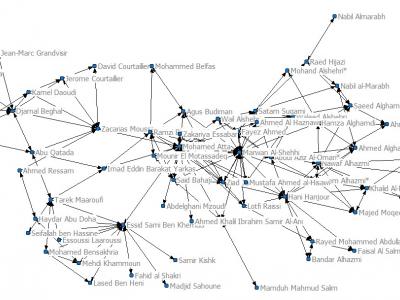Security

This dataset supports researchers in the validation process of solutions such as Intrusion Detection Systems (IDS) based on artificial intelligence and machine learning techniques for the detection and categorization of threats in Cyber Physical Systems (CPS). To that aim, data have been acquired from a water distribution hardware-in-the-loop testbed which emulates water passage between nine tanks via solenoid-valves, pumps, pressure and flow sensors. The testbed is composed by a real partition which is virtually connected to a simulated one.
- Categories:
 3634 Views
3634 Views
Supplemental material for paper "Energy Efficiency Analysis of Post-Quantum Cryptographic Algorithms."
- Categories:
 79 Views
79 Views· 9/11 hijackers network dataset [20]: The 9/11 hijackers network incorporates 61 nodes (each node is a terrorist involved in 9/11 bombing at World Trade Centers in 2011). Dataset was prepared based on some news report, and ties range from ‘at school with’ to ‘on the same plane’. The Data consists of a mode matrix with 19*19 terrorist by terrorist having trusted prior contacts with 1 mode matrix of 61 edges of other involved associates.
- Categories:
 1054 Views
1054 ViewsThe S3 dataset contains the behaviour (sensors, statistics of applications, and voice) of 21 volunteers interacting with their smartphones for more than 60 days. The type of users is diverse, males and females in the age range from 18 until 70 have been considered in the dataset generation. The wide range of age is a key aspect, due to the impact of age in terms of smartphone usage. To generate the dataset the volunteers installed a prototype of the smartphone application in on their Android mobile phones.
- Categories:
 2248 Views
2248 Views
The Development of an Internet of Things (IoT) Network Traffic Dataset with Simulated Attack Data.
Abstract— This research focuses on the requirements for and the creation of an intrusion detection system (IDS) dataset for an Internet of Things (IoT) network domain.
- Categories:
 1065 Views
1065 Views
Disclaimer
- Categories:
 3360 Views
3360 Views
The Internet of Things (IoT) is reshaping our connected world, due to the prevalence of lightweight devices connected to the Internet and their communication technologies. Therefore, research towards intrusion detection in the IoT domain has a lot of significance. Network intrusion datasets are fundamental for this research, as many attack detection strategies have to be trained and evaluated using these datasets.
- Categories:
 2244 Views
2244 Views
Dataset with diverse type of attacks in Programmable Logic Controllers:
1- Denial of Service
- Flooding
- Amplification/Volumetric
2- Man in the Middle
The full documentation of the dataset is available at: https://arxiv.org/abs/2103.09380
- Categories:
 2941 Views
2941 Views


